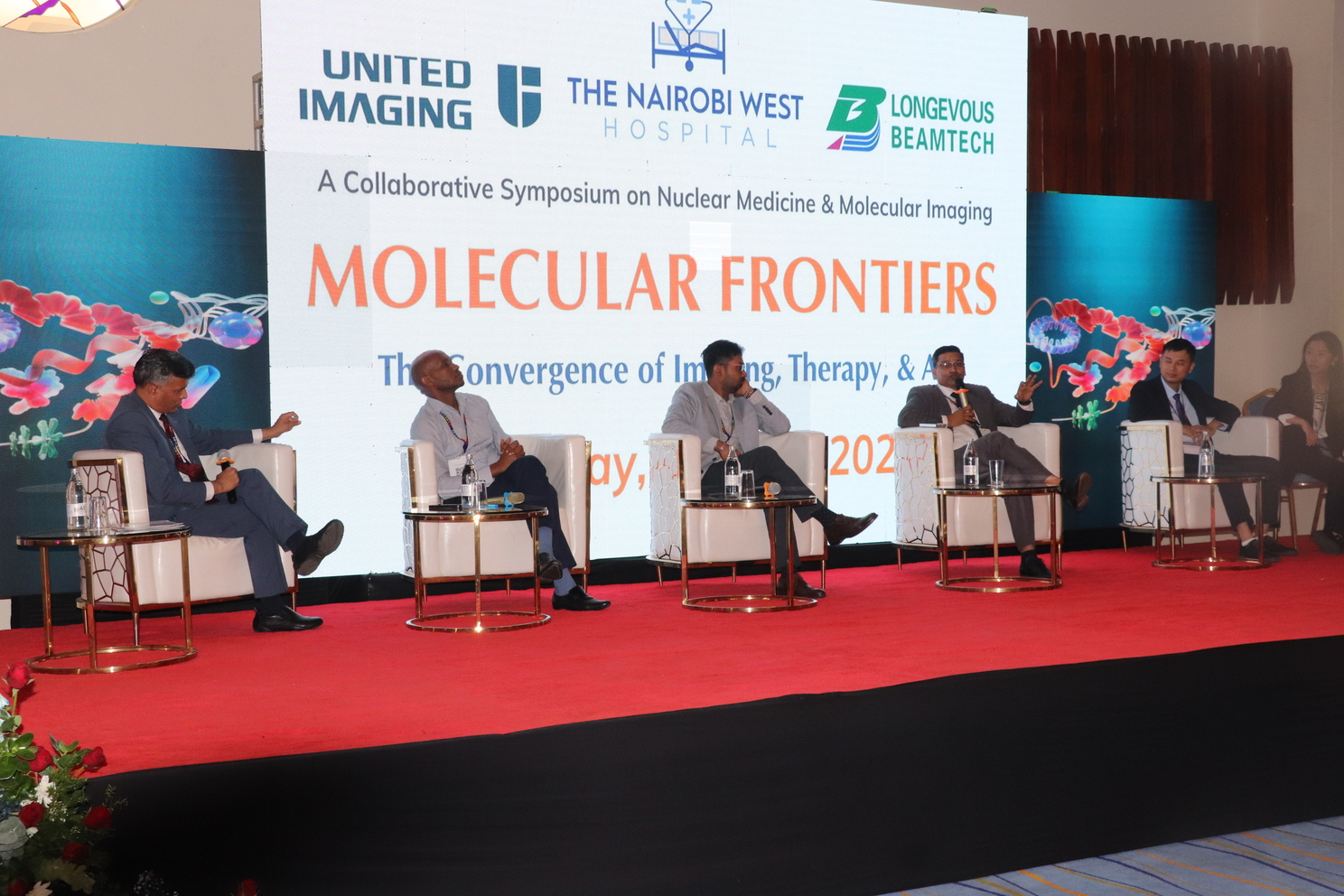
The Kenyan government is calling for a radical overhaul of the country’s healthcare systems, including the integration of artificial intelligence (AI) in nuclear medicine.
It describes this as a revolution aimed at transforming how diseases such as cancer are diagnosed and treated.
Speaking at the Molecular Frontiers Symposium held on June 5 in Nairobi, Prof Abdulrazak Shaukat, principal secretary in the newly formed State Department of Science, Technology and Innovation under the Ministry of Education, said the country stands on the brink of a new era in healthcare, one powered by cutting-edge technologies.
“We stand at a time of a transformative era where the convergence of nuclear medicine, molecular imaging, and AI is not merely shaping how we treat disease but defining how we understand life itself,” said Shaukat in his keynote address.
Themed “Molecular Frontiers: The Convergence of Imaging, Therapy and AI,” the symposium brought together leading clinicians, researchers, and innovators to explore breakthroughs in imaging, radiopharmaceuticals, and targeted therapies.
Prof Shaukat underscored the urgency for Kenya and the wider continent to lead in adopting these advancements, positioning Africa as an active participant in the global nuclear medicine movement.
“Imagine a world where a simple scan can reveal disease in infancy, where therapy targets cancer cells with laser precision, sparing healthy tissues entirely. This is not science fiction. This is the promise of theranostics and the next generation of radiopharmaceuticals,” he said.
He cited the use of prostate-specific membrane antigen (PSMA) in treating advanced prostate cancer as a compelling example.
“Early clinical trials at institutions like Steve Biko Academic Hospital in South Africa have shown that the use of PSMA can elicit a profound response in patients whose disease was once deemed incurable,” he said.
He highlighted local capacity already in place, pointing to the availability of medical isotopes such as Lutetium-177 at Aga Khan University Hospital and existing cyclotrons and nuclear reactors in Kenya that could support wider access to nuclear therapies.
However, he warned that existing milestones are only the beginning of a longer journey. “More than 4.7 billion people—about 60 per cent of the world’s population—lack access to essential nuclear medicine services,” he said.
“In many low-resource regions, there are fewer than 0.01 nuclear medicine physicians per million people compared to over three in high-income countries.”
To address this disparity, he called for increased investment in local isotope production, a scale-up of nuclear medicine training programs, and stronger gender equity in science.
He announced that the government would deepen partnerships with international institutions such as the International Atomic Energy Agency (IAEA), which allocates 60 per cent of its technical cooperation budget to capacity building in developing countries. The PS also spotlighted AI’s pivotal role in expanding access and precision within nuclear medicine.
“Each scan generates immense amounts of data. Artificial intelligence will help us integrate patient-specific variables—tumour volumes, organ functions, previous treatments—towards more precise, personalized care,” he said.
Prof Shaukat raised alarm over Africa’s persistent loss of skilled professionals in nuclear medicine and urged a strategic shift.
“We must reverse the brain drain and create a system of brain circulation. Our experts must not just train abroad but return to build our health systems,” he added.
Dr Kibet Shikuku, a human pathology expert at The Nairobi West Hospital, reinforced Prof Shaukat’s remarks, saying nuclear medicine is now integral to the future of healthcare. “Nuclear medicine and molecular imaging are no longer on the periphery of modern medicine.They are its core,” he said.
Beyond diagnosis and treatment, Nairobi West Hospital is now piloting adaptive radiotherapy—a method of tailoring treatment over time by re-scanning patients mid-therapy and adjusting doses based on tumor response. Experts at the symposium said the next big leap lies in marrying AI with digital.

![[PHOTOS] Ruto inspects his Naivasha farm](/_next/image?url=https%3A%2F%2Fcdn.radioafrica.digital%2Fimage%2F2025%2F06%2F72a14e8a-a040-48e1-87b3-597dbca6d7c6.jpeg&w=3840&q=100)









